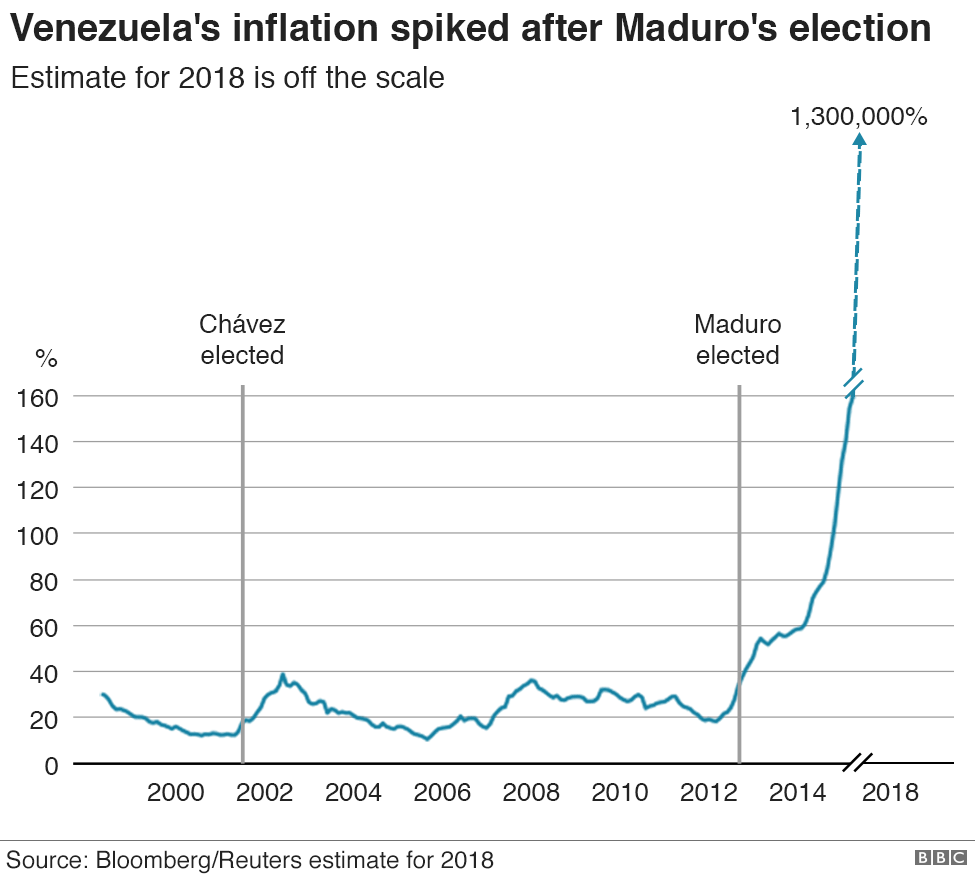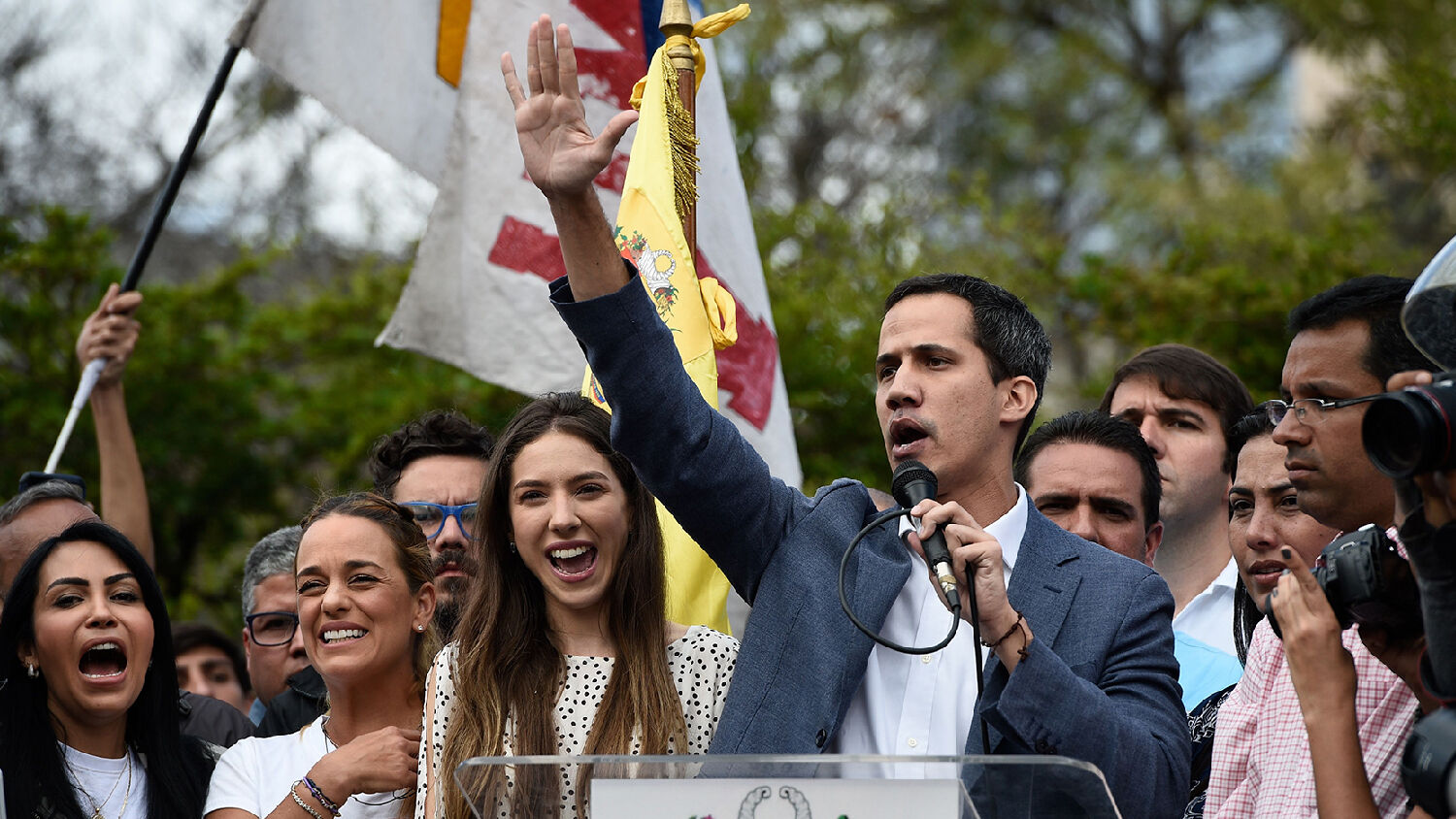Located in the northern coast of South America with a population of over 28 million, Venezuela, a country once seen so prosperous is now is in a political and economic mess. One of the leading exporters of oil, poor policies as well as poor administration has led to an entire economic collapse. Once Hugo Chavez became president in 1999, a new Constitution was put into a place in which he proposed an increase in presidential terms and presidential powers. Before his untimely death in 2013, Chavez was able to name his predecessor in Nicholas Maduro and since then Venezuela’s democracy has taken a major hit as their political future is surely in doubt.
 |
| Figure 1. Venezuelans protest Maduro's regime (Rawlins, 2017). |
President Maduro, the leader of the United Socialist Party of Venezuela, has sent the country into the worst recession in their nation’s history as his only goal seems to be expanding his own power. Under this authoritarian rule, the economy has collapsed, and shortages of basic necessities have plagued the country (Congressional Research Service, 2020). The biggest issue came in 2019 when Nicholas Maduro illegally claimed the presidency as evidence proves of a rigged and fraudulent election where Maduro manipulated the electoral process towards his own benefit. These illegal practices include voter suppression, manipulation of votes, and voter intimidation (State.Gov, 2020). To add on to his illegitimacy, Maduro has also placed bans on the participation of major political parties and their candidates as well as postponing other national elections indefinitely. As a result citizens are fleeing the state as they search for a new homes and opportunities as the crisis in Venezuela leaves them no more hope (The Heritage Foundation, 2020). Poverty levels continue to rise and the manipulation of food for support by the government continue to damage their reputation.
 |
| Figure 2. Graph shows the increase in inflation levels since Maduro has been president. |
The United States and 57 other nations view Maduro as the illegitimate president of Venezuela and recognize Juan Guaido as the democratically elected president. Guaido and most citizens seek along with international help, a peaceful transition of power but seems very unlikely as they seek other alternatives. Although the Maduro regime has yet to give up power even as they face heavy sanctions from the United States puting pressure on Maduro’s circle as their county’s economy continues to tumble. In a government that features major corruption, mishandles the country’s natural resources for their own expense, and seeks fraudulent elections proves Venezuela is no longer a democracy put a dictatorship under Maduro.
 |
| Figure 3. Interim President Juan Guaido speaks to supporters at an event in Caracas (Miller, 2019). |
References:
Congressional Research Service, Venezuela: Background and U.S. Relations. (2020, August 26). Retrieved October 25, 2020, from https://fas.org/sgp/crs/row/R44841.pdf
The Heritage Foundation, The Troubling Situation in Venezuela. (2020). Retrieved October 27, 2020, from https://www.heritage.org/americas/heritage-explains/the-troubling-situation-venezuela
U.S. Department of State, Venezuela: A Democratic Crisis - United States Department of State. (2020, October 08). Retrieved October 27, 2020, from https://www.state.gov/a-democratic-crisis-in-venezuela


1 comment:
Really interesting article. There's no doubt that the situation in Venezuela is very bad. In highschool, a good friend of mine was from Venezuela, and there were times when he would have to mail essential items such as cleaning products and toilet paper to his family in Venezuela as the economy there is really struggling and it can be at times difficult to acquire even basic items.
Post a Comment